In today’s competitive sports landscape, effective management of relationships with fans, sponsors, and players is crucial. Developing a sports CRM software solution can empower organizations to streamline operations and improve fan engagement.
This comprehensive blog provides the essential components of sports CRM software, including its various types, key features, and more. Whether you’re a sports club, organization, or agency, understanding how to create a tailored CRM solution will improve customer relationships and position your organization for long-term success.
Sports CRM software is a specialized system designed to manage the relationships between sports organizations and their various stakeholders. It centralizes all data in one system, streamlines processes, and automates many tasks. By using a sports CRM system, teams can manage ticket sales, fan engagement, sponsor relationships, athlete performance, and more.
A sports CRM works by collecting and storing data related to all interactions, whether it’s through emails, social media, or events. This data helps to build detailed profiles for fans, athletes, and stakeholders, enabling personalized marketing.
Sports CRM software benefits various sports organizations, from local clubs to major leagues. Here is an overview of it:
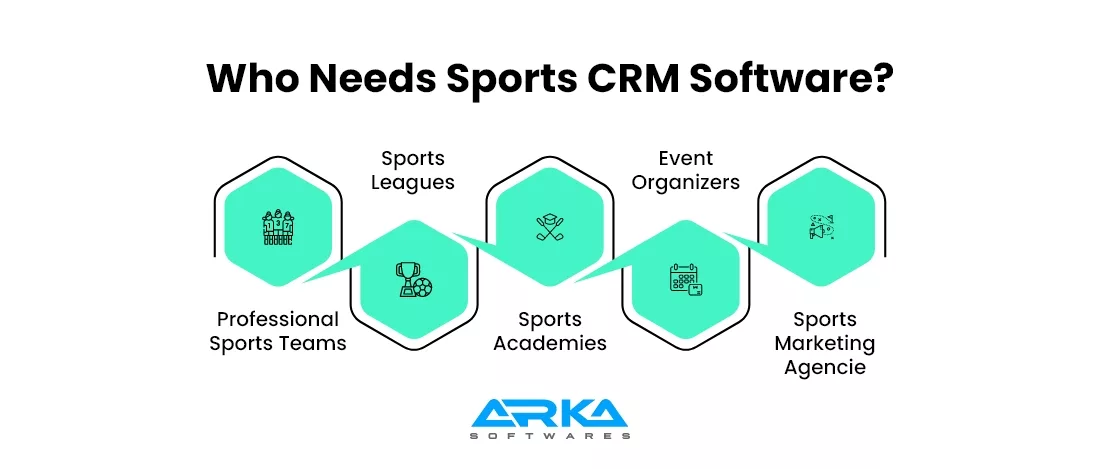
There are three main types of CRM, each designed with unique features to meet different business needs.
An operational CRM is focused on streamlining, managing, and simplifying core business processes. This type of CRM includes three key components: marketing automation, sales automation, and customer service, all designed to provide the infrastructure necessary for retaining customers.
Analytical CRM empowers businesses to make data-driven decisions by analyzing across various metrics. It connects to customer data, extracting insights based on behavior and preferences. This allows organizations to generate reports on important KPIs, facilitating informed decision-making.
Collaborative CRM integrates marketing and sales data from multiple sources, fostering collaboration across teams. By providing a comprehensive view of customer needs and expectations, it helps sales and marketing teams work together more to close deals.

Sports CRM software offers various advantages that can improve how sports organizations operate:
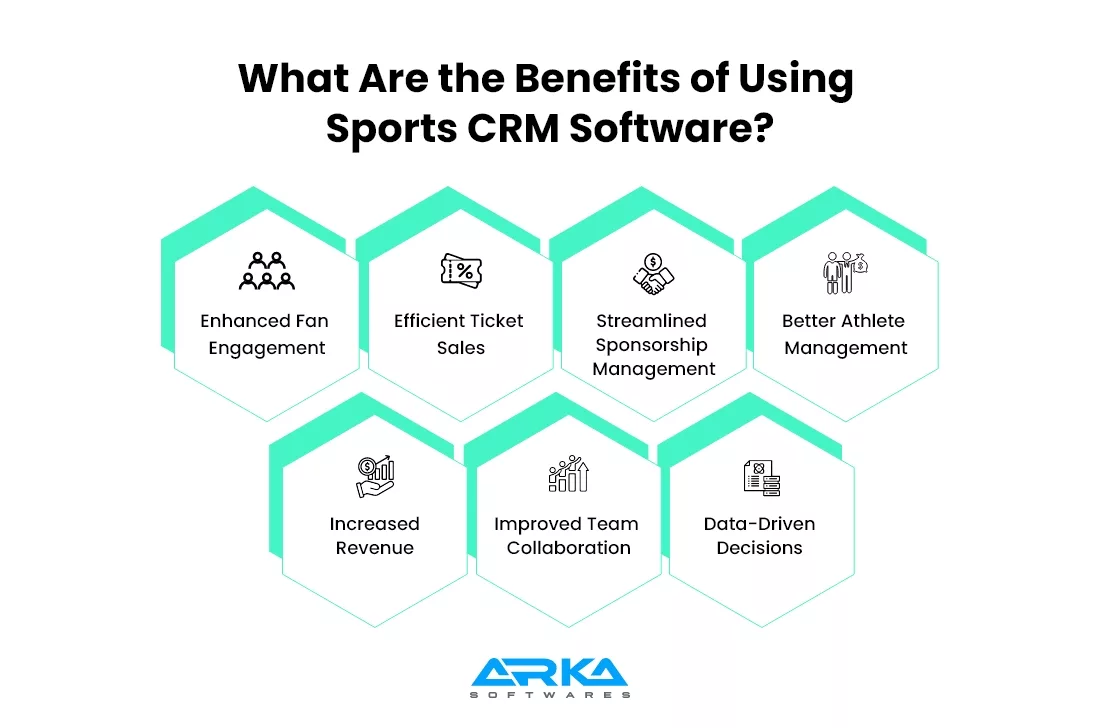
Known for its wide array of marketing and sales features, HubSpot is a popular choice for sports organizations to manage fan engagement and ticket sales.
A versatile CRM with customizability, Zoho is ideal for sports organizations that require a customizable solution for sponsorship and athlete management.
A dedicated CRM for the sports industry, Salesforce offers robust tools for fan engagement, ticketing, and analytics.
It is designed for sports teams. TeamSnap excels in athlete management, team communication, and scheduling.
A fan-centric CRM that focuses on enhancing fan experiences, event management, and sponsor interactions.
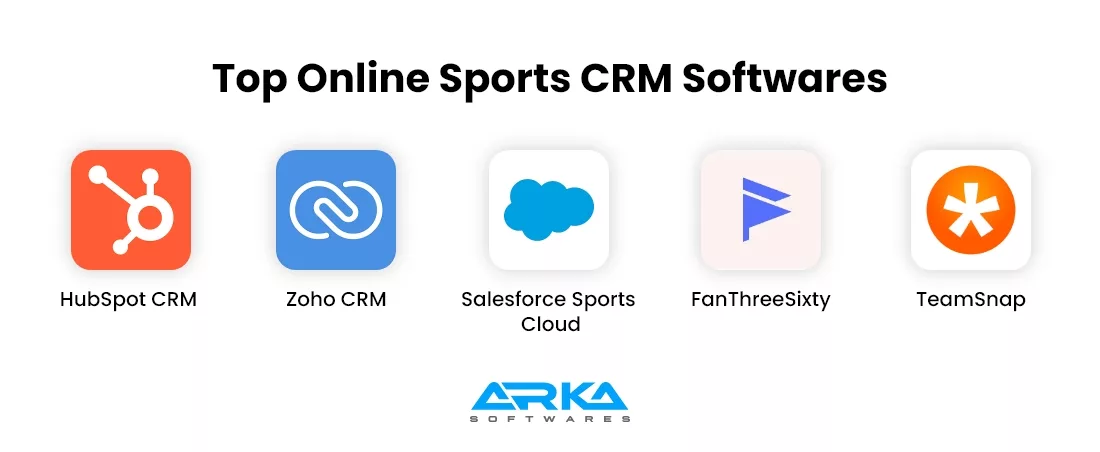
Developing a custom sports CRM requires integrating various modules tailored to sports organization needs. Here are the top modules to consider:
This module provides a centralized database for managing athletes, fans, sponsors, and partners. It supports demographic segmentation, automated data entry, and profile updates. With custom tagging and tracking communication history, it offers comprehensive contact management.
A robust ticketing system allows for seamless management of ticket sales, event promotions, and seat reservations. This module integrates with online ticketing platforms and helps events see attendance while gathering post-event feedback.
It tracks sponsorship deals and manages relationships. It allows creating customizable sponsorship tiers, tracking ROI, automating invoicing, and monitoring partnership performance through an analytics tool.
Engaging fans is crucial for any sports organization. This module offers personalized communication through emails and SMS, social media integration, loyalty program management, and automated surveys for feedback collection. To make these interactions seamless and easy to manage, teams often rely on a form builder tool to create surveys, registration forms, and feedback collection forms without coding.
Athlete performance is a core concern for sports organizations. This module centralizes athlete data, tracks injuries, manages contracts, and provides detailed stats and analytics. It also tracks training schedules and key milestones.
Enhance collaboration with shared calendars, real-time messaging, and task management. This module helps teams stay organized with tools for document sharing. It is role-based access and external calendar syncing.
Track and analyze individual and team performance with this module. It integrates with wearable devices and generates performance reports. It visualizes data through charts and dashboards.
This module ensures smooth handling of fan and athlete inquiries. It includes a ticketing system for tracking requests, automated responses, and more. It offers multi-channel support through email, phone, and chat.
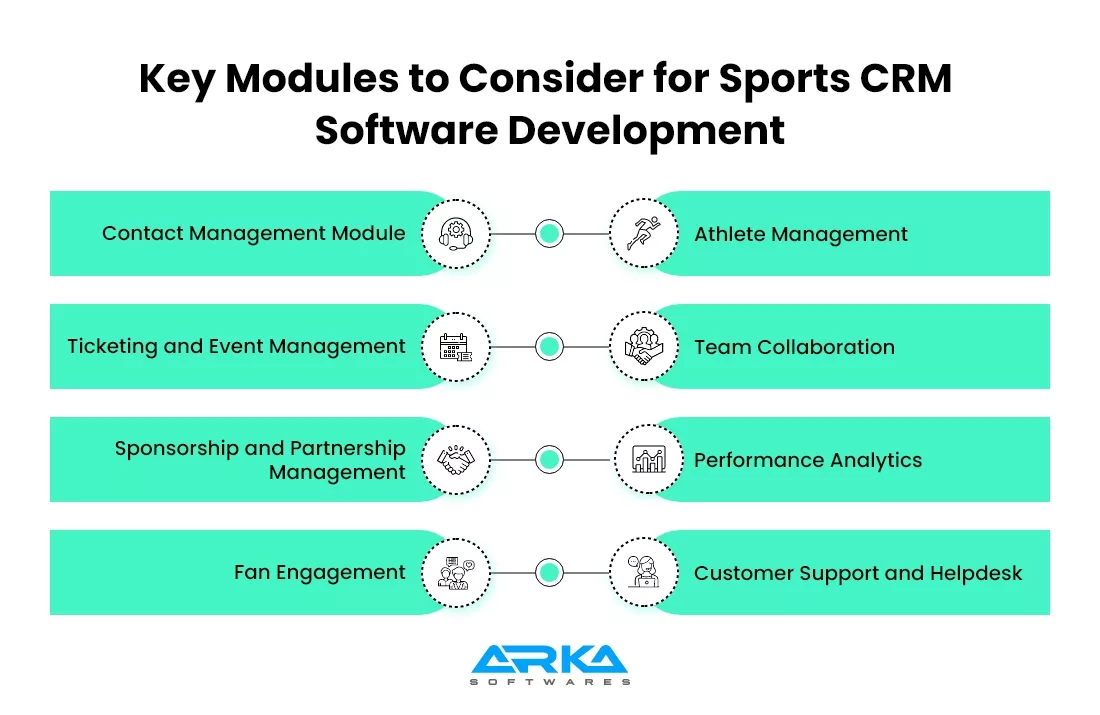
A proper tech stack is necessary to develop custom sports CRM software. The stack may include:
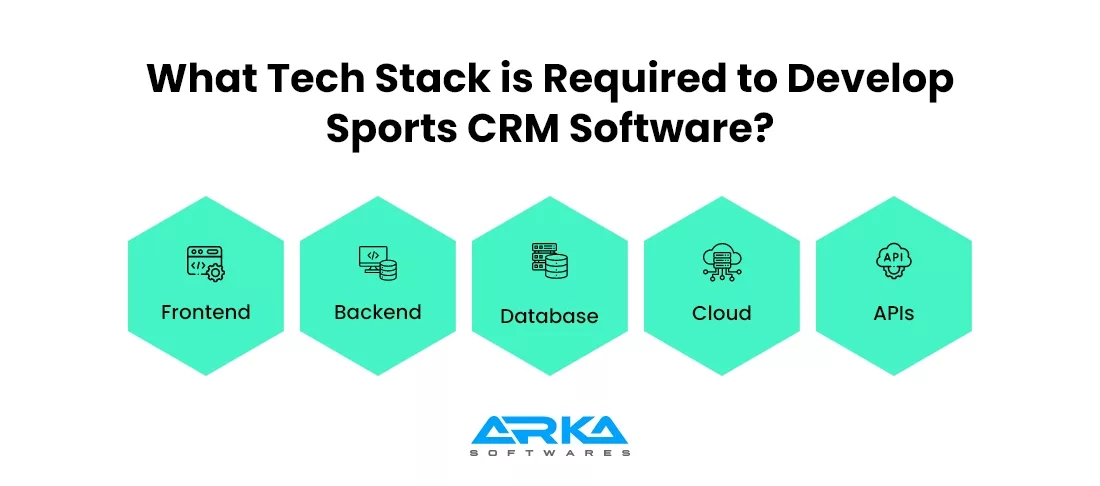
Custom CRM software allows sports organizations to build features tailored to specific needs. It offers more flexibility and scalability than SaaS solutions, but the development cost is higher.
Organizations looking for expert guidance in CRM implementation can benefit from Dynamics 365 consulting services. These services help optimize system configurations, integrate essential modules, and enhance overall efficiency.
SaaS CRMs, like Salesforce or Zoho, provide out-of-the-box solutions, which can be deployed at a lower cost. However, they may not offer the same level of customization that a growing sports organization needs.
Here’s a comparison of Custom Sports CRM Software Development and SaaS CRM.
| Feature | Custom Sports CRM Development | SaaS CRM |
| Customization | Highly customizable to meet specific needs | Limited customization options |
| Initial Costs | Higher upfront investment | Lower initial costs with a subscription model |
| Implementation Time | Longer development and deployment time | Quick setup and immediate availability |
| Control | Full control over features, security, and data | Limited control, dependent on provider |
| Scalability | Easily scalable as the organization grows | Some scalability, but may require plan upgrades |
| Maintenance | Requires internal or hired technical support | Provider handles maintenance and updates. |
| Updates | Manual updates and enhancements by your team | Automatic updates provided by the vendor |
| Data Security | Complete control over data security measures | Relies on third-party security protocols |
| Long-Term Costs | Potentially lower long-term costs after initial investment | Ongoing subscription fees can add up over time. |
| Technical Expertise | Requires specialized staff for development and support | Minimal technical expertise is required to use |
The development process involves the following key steps:
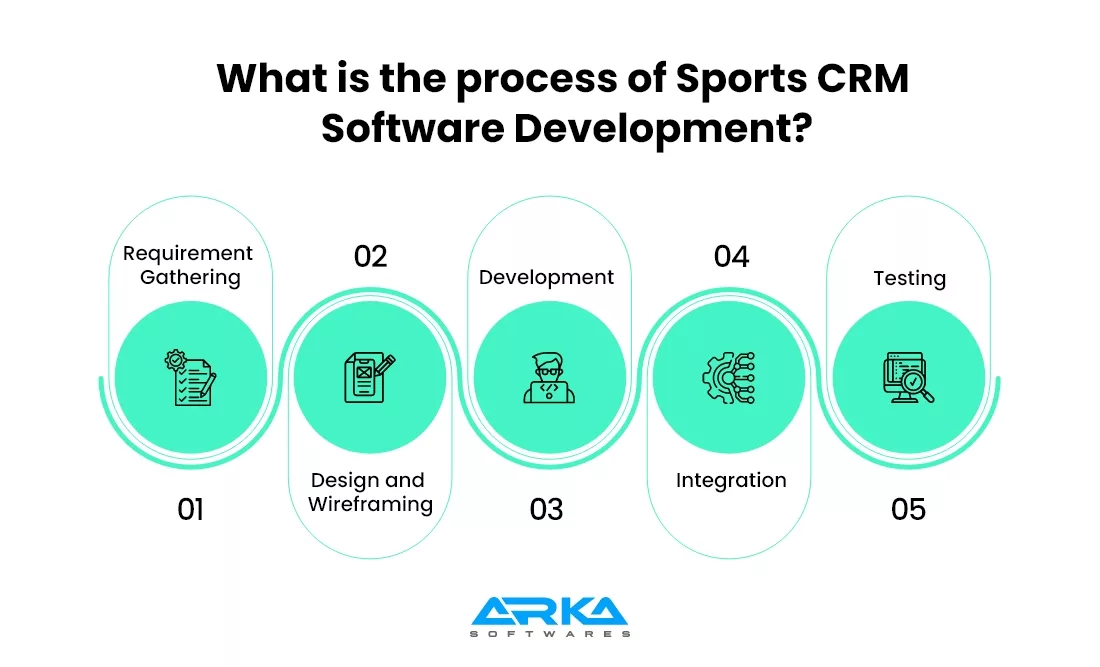
The cost of building sports CRM software can vary depending on several factors, including the complexity of features, the technology stack used, and more. For a basic CRM with essential functionalities such as customer management, the cost can range from $50,000 to $150,000. If you opt for more advanced features like AI-driven analytics, comprehensive reporting, and third-party integrations, the total could rise to between $150,000 and $500,000.
Additional costs include design and user experience, which might add $5,000 to $20,000, and ongoing maintenance, which costs around 15-20% of the initial development cost annually.
When building sports CRM software, several cost factors come into play. Here’s a breakdown of the key components that influence the expense:
Hiring an in-house team can be more costly than outsourcing to a development agency, with rates varying based on location. Experienced developers and specialized roles (e.g., UI/UX designers, data analysts) typically command higher salaries.
The more features you include (e.g., ticketing, marketing automation, analytics, integrations), the higher the cost. Tailoring the CRM to specific organizational needs adds to development time and costs.
A well-designed user interface is crucial for user adoption and can cost anywhere from $5,000 to $20,000, depending on complexity.
The choice of programming languages, frameworks, and tools can impact development costs. Licensing fees for proprietary software also add to expenses. Costs for hosting, storage, and bandwidth depend on the service provider and scale of the application.
Integrating with payment gateways, email marketing tools, and social media platforms incurs additional costs, both for development and ongoing usage fees.
Budgeting for maintenance, updates, and user support amounts to 15-20% of the initial development cost per year.
Implementing necessary security measures and ensuring compliance with regulations (like GDPR) can add to development costs.
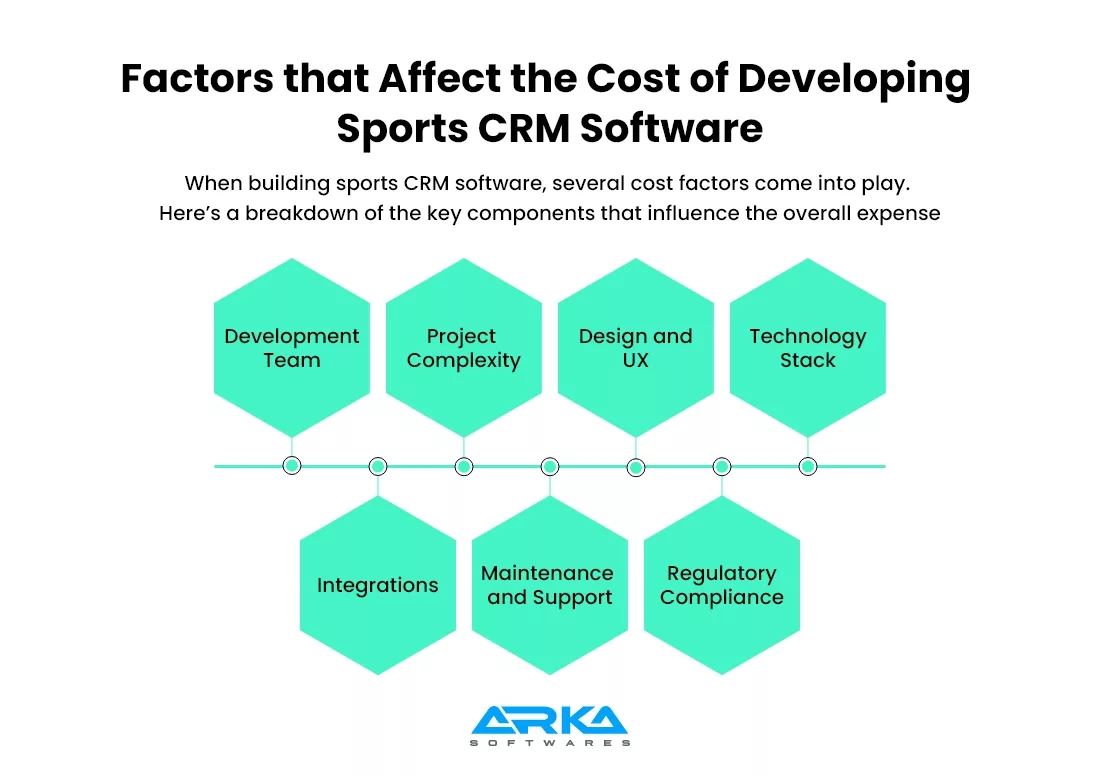
Creating a team management app can be a transformative investment for any sports organization. While initial challenges might make it seem daunting, the long-term benefits far outweigh the costs. This strategic move can enhance your club’s visibility and reputation assets, which are invaluable in the competitive sports landscape.
If you’re excited about developing a unique, customizable software solution to connect your team and streamline operations, reach out to us! Our team is here to help you brainstorm and refine your app idea. We’ll guide you through every step of the process to ensure that your club is thrilled with the result. Let’s make your vision a reality!
Developing a sports CRM is essential for your organization as it enhances fan engagement, streamlines marketing strategies, and improves ticket sales and upselling efforts. These tailored tools allow you to harness customer data effectively.
Sports CRM software is typically categorized into three types: operational, analytical, and collaborative systems. Each type serves distinct functions to address the unique needs of sports organizations.
Sports CRM software helps manage relationships with various stakeholders, including fans, players, sponsors, and partners. It supports the entire lifecycle of these relationships—from attracting new fans and securing sponsorships to providing ongoing support and enhancing fan experiences.
According to Fortune Business Insights, the global Customer Relationship Management (CRM) market was valued at USD 64.41 billion in 2022, with a projected growth rate of 12.0%. This growth reflects the increasing importance of CRM tools across industries, including sports, where enhanced engagement and data-driven strategies are becoming essential.
The cost of developing custom sports CRM software can vary based on several factors, including the complexity of the features required (like ticketing systems and analytics). The design aesthetics, the size and expertise of the development team, and the chosen technology platform.